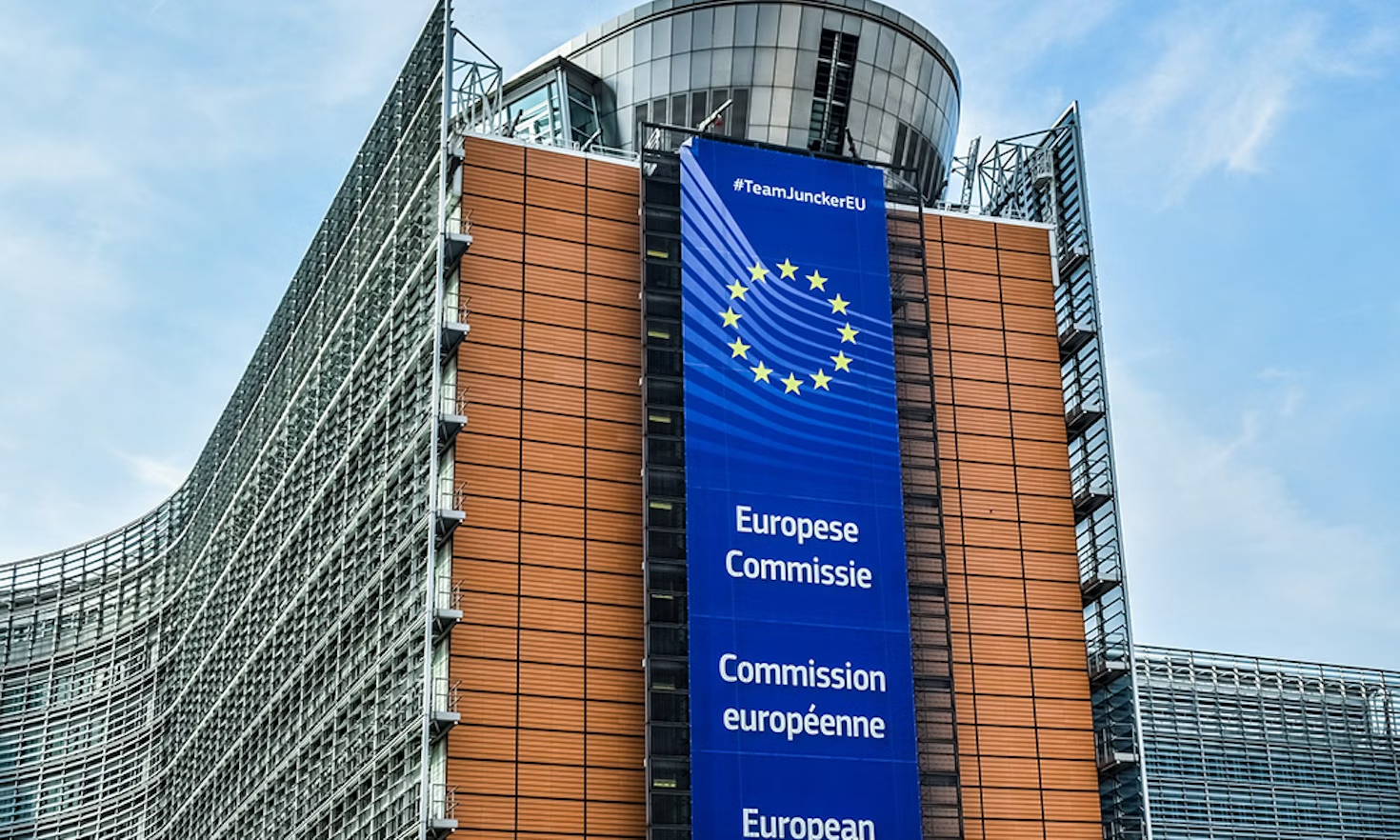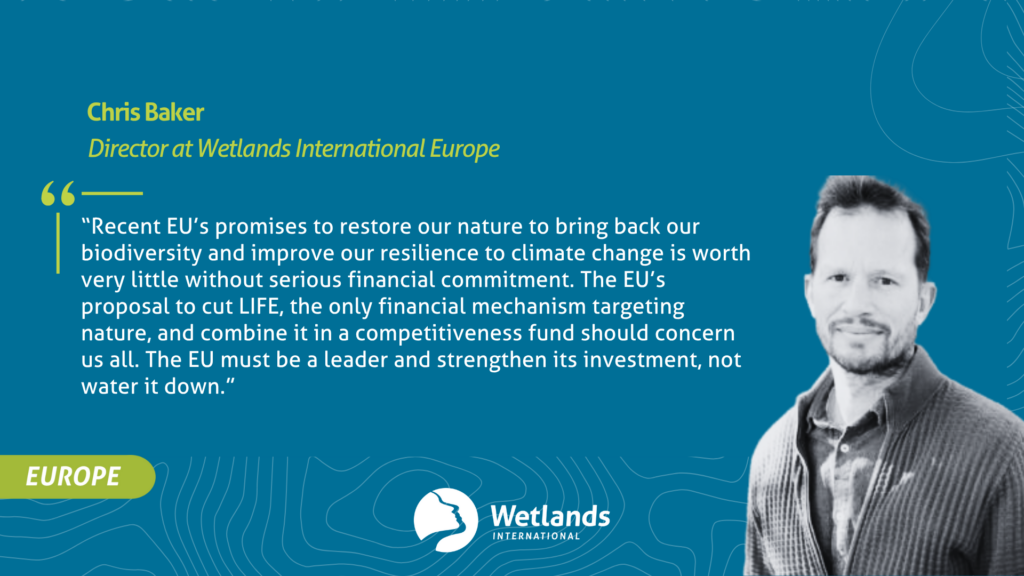
Consequences on wetlands of the new budget for EU environmental policy
-
Advocacy
-
Press Release
The recent publication of the European Commission’s proposal for the next Multiannual Financial Framework (MFF) has raised serious concerns across the environmental community. It confirms one of our worst fears; the proposed absorption of the LIFE Programme into a broader European Competitiveness Fund. This marks a significant shift — and a potentially dangerous one — in how the EU finances nature, climate, and environmental protection.

For over 30 years, LIFE has been the EU’s only dedicated funding instrument for biodiversity and climate action. It has supported targeted, effective projects with measurable results on the ground, including vital restoration work in wetlands, forests, and peatlands. It has enabled large scale, transboundary and multi-lateral efforts to happen such as waterbird flyway initiatives. The proposed changes show a step back from the EU’s commitment to nature and climate — not through big announcements, but through how the budget is set. It risks removing one of the EU’s main tools for protecting the environment, just when steady and strong investment is most needed.
Nature is essential
Wetlands are far more than beautiful landscapes — they are vital ecosystems that regulate water cycles, mitigate floods and droughts, and support biodiversity. The EU’s recently released Water Resilience Strategy highlighted this and their central role in combating climate change and water insecurity. Their ongoing loss, driven in large part by insufficient funding, is already undermining these commitments. The next MFF proposal would only deepen that trend.
Although the European Commission has maintained a general 35% target for environmental spending, this figure lacks specificity and enforceability. Grouping all environmental objectives under one target risks sidelining biodiversity, as more easily marketable “green” projects are prioritised. Moreover, problems with how green spending is tracked make it harder to know where the money really goes and to hold decision-makers accountable.
This is especially alarming in light of recent data released by the Convention on Wetlands, which warns that 20% of the world’s remaining wetlands could vanish by 2050 without decisive action. Europe must lead by example. Dismantling LIFE and failing to ring-fence funding for wetland restoration is the opposite of leadership.
The next two years will be critical
Wetlands International Europe joins its peers in calling on the European Parliament and Member States to defend and reinforce the LIFE Programme, and to ensure that at least 50% of the MFF is directed toward genuine climate and biodiversity investments. This must be backed by robust monitoring, sector-specific targets, and the phasing out of harmful subsidies.
Europe cannot afford short-term political decisions that compromise long-term environmental security. The future of wetlands — and the health of our planet — is at stake.
At a time of accelerating climate and biodiversity loss, removing dedicated funding for nature is not just a policy oversight — it’s a step in the wrong direction. Europe must lead by investing in wetlands and the ecosystems that protect us all.
